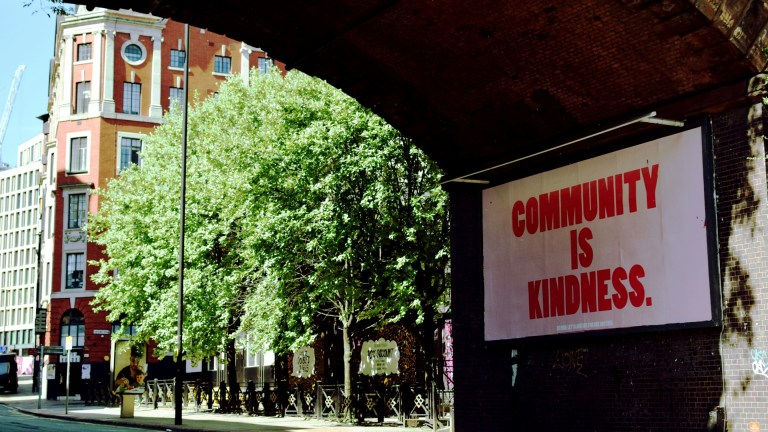
It is not often that I wax lyrical about a book. But a small book I picked up last week intrigued me. I, a slow reader, read the 175 pages of Mr Fox by Barbara Comyns in just under a day. It’s published by a Northern Irish publisher called Turnpike Books, and I picked it up in Waterstones, attracted as with most of my book purchases by the cover. It showed a reprint of a railway company poster of 1939: a bustling, bus-laden street with St Paul’s Cathedral towering over all.
Enough of a draw to a chap like me who is in love with the 1930s and the war years, having only just missed them because Mum had only just met Dad. Am I one of only a small number who are obsessed with the years just previous to my birth; or do we all dote on times just before us?
Set in and just before the war years, Mr Fox describes one long struggle by a deserted young mother who – though from the ‘top drawer’ – has fallen on hard times. The miserableness of her circumstances causes her to have to move in with a black marketeer and petty thief who treats the woman, Caroline, and her child with a combination of kindness and nastiness. She is caught and, in seeking an exit, runs into even more problems. Probably the beast of the whole book is a selfish, moralistic-sorry-vegan mother who Caroline goes to live and work with as the war begins. A cold, virtuous house with a spoilt child and hunger stalking Caroline and her daughter’s life, it is a case of studied menace done in a very middle-class way.
Suffering is on every page, but the joy of the book is how the young mother, based on the author’s own experience, seems to struggle on to the next solution only to find that it solves nothing. It is a short odyssey of reversals of fortune that is so well written, in a kind of indomitable fashion, that it makes you believe in the whole project. Cleaner, hostess and almost-compromised young woman, cook and household slave, Caroline manages to get through the deprivation and the war still confident that something soon will turn her fortunes.
The description of the bombing raids on London and surrounding areas is some of the best I have read, showing it from below. ‘Below’ in the sense both of among the poor and below the threat that came from the skies.
- John Bird: One hundred years into this new world the challenges remain
- UK poverty: the facts, effects and solutions in a cost of living crisis
- Here’s five things we learned from Universal Credit: Inside the Welfare State
Mr Fox is one long drama of poverty and being beholden to those who want to exploit and use you; and Comyns produced a classic in these few pages. Its great strength though, is the remorselessness of the young mother’s struggle, and how much of life is caught in this way. But it shows a poverty that is different from most poverty in the UK today. The poor of the pre-war and war years were largely left unprovided for; or little provided for. The great machinery of the Welfare State had yet to be invented. The government did not then spend circa 40 per cent of its income on trying to make poor people as comfortable as possible; trying to take the edge off of their being cast out to the fringes of society. Making the internal refugeeism of poverty as bearable as possible, though without actually getting people out of poverty.











